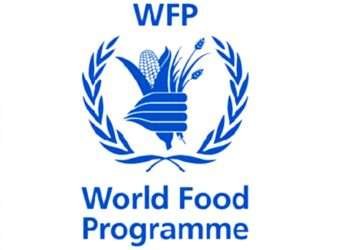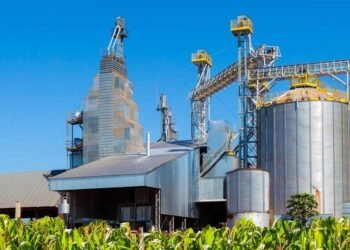The African Continental Free Trade Area (AfCFTA) is set to boost cement production for the Dangote Cement Company.
The AfCFTA will provide the Dangote Cement Company the impetus to expand its cement production capacity with new plants in Africa as businesses across the continent strategize under the trade deal.
Africa’s largest cement producer that already has cement production plants in more than 10 countries said in a statement that as part of its expansion, it would “open new trade routes for the company and Nigeria under AfCFTA”.
The company, owned by Africa’s richest man Aliko Dangote indicated in the statement that plans are far advanced for Dangote to commission new cement plants in five West African countries of Niger, Benin, Ghana, Cote d’Ivoire, and Togo while existing factories in Cameroon and its home base, Nigeria, would be increasing their output.
“Africa needs to deliberately improve its per capita consumption of cement to aid infrastructural development by stimulating further demand and forcing down the cost of the commodity,” Dangote said in the statement.
The United Nations Conference on Trade and Development (UNCTAD) report for 2020 clearly stated that for the Africa free trade area to work, the infrastructure deficit should be closed.
Dangote is, therefore, hoping to leverage the infrastructure deficit with his cement investments in the continent, according to the statement.
“Dangote Cement’s strategy to offer high-quality products at competitive prices is meeting customers’ expectations in Nigeria and across the continent, where we continue to deploy excellent marketing initiatives and operational excellence across the continent”, Michel Puchercos, Group Chief Executive Officer, said.
Activities of Dangote Cement in the first 9 months of 2020 within the Pan-African region showed that total sales within the region accounted for 38.9% of Group volumes.
Sales volumes in Pan-Africa were 7.5Mt in the first nine months of 2020, up 3.7%, despite various lockdowns and restrictions that were put in place across the company’s operations in the first half of the year.
Most of these measures were lifted in June; as a result, the third quarter was not affected by lockdown. Pan-African revenues of ₦232.6 billion were 9.1% higher than the first nine months of 2019 and represented 30.5% of total Group revenue.
Trading under the agreement began on January 1, 2021, after it was postponed from taking off on July 1, last year because of the outbreak of the COVID-19 pandemic.
The AfCFTA aims to create the world’s largest free trade area with the potential that brings together more than 1.2 billion people with a GDP of over $2.5 trillion and usher in a new era of development. It has the potential to generate a range of benefits through economy of scale, trade creation, structural transformation, productive employment, and poverty reduction.
Through its African Trade Policy Centre (ATPC), the Economic Commission for Africa (ECA) has been working with the African Union Commission (AUC) and member states to deepen Africa’s trade integration and effectively implement the agreement through policy advocacy and national strategy development.
The ECA also works closely with the International Trade Centre (ITC), UNCTAD, and a selection of independent trade experts with the financial support of the European Union (EU) to support the implementation of the AfCFTA across the continent.























